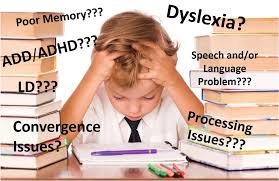According to Dr Molosiwa, who is a leader in the research department at Special Needs department in the University Of Botswana, learning disability is a reduced intellectual ability and difficulty with everyday activities. The Doctor has been an advocate in helping in the reduction of decline in performances by students across Botswana.
“People with a learning disability tend to take longer to learn and may need support to develop new skills, understand complicated information and interact with other people. ” she explained.
Dyscalculia
A specific learning disability that affects a person’s ability to understand numbers and learn math facts. Individuals with this type of LD may also have poor comprehension of math symbols, may struggle with memorizing and organizing numbers, have difficulty telling time, or have trouble with counting.
Dysgraphia
A specific learning disability that affects a person’s handwriting ability and fine motor skills. Problems may include illegible handwriting, inconsistent spacing, poor spatial planning on paper, poor spelling, and difficulty composing writing as well as thinking and writing at the same time.
Language Processing Disorder
A specific type of Auditory Processing Disorder (APD) in which there is difficulty attaching meaning to sound groups that form words, sentences and stories. While an APD affects the interpretation of all sounds coming into the brain, a Language Processing Disorder (LPD) relates only to the processing of language. LPD can affect expressive language and/or receptive language.
Visual Perceptual/Visual Motor Deficit
A disorder that affects the understanding of information that a person sees, or the ability to draw or copy. A characteristic seen in people with learning disabilities such as Dysgraphia or Non-verbal LD, it can result in missing subtle differences in shapes or printed letters, losing place frequently, struggles with cutting, holding pencil too tightly, or poor eye/hand coordination.










